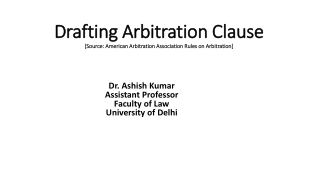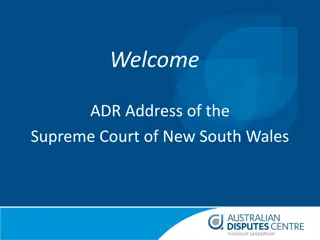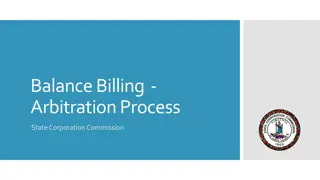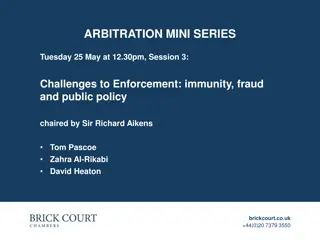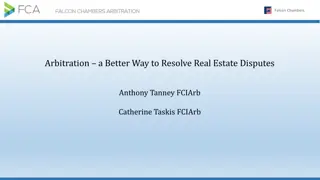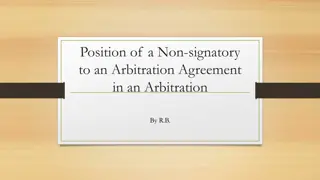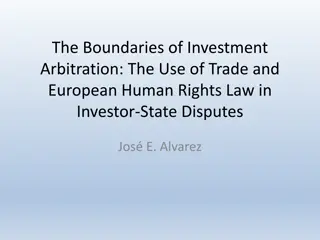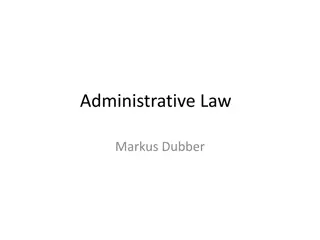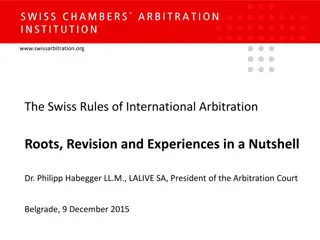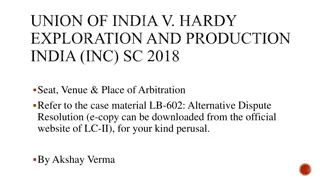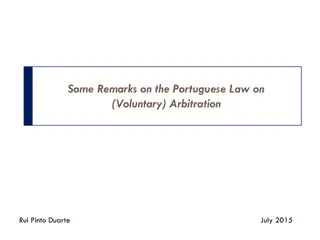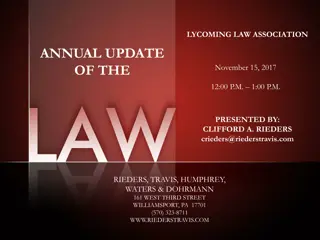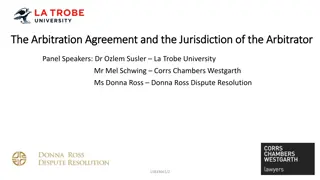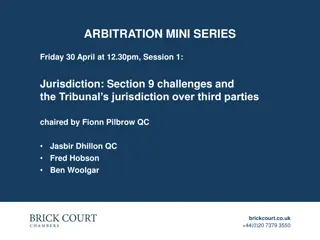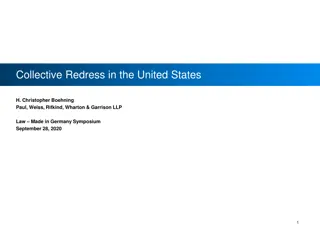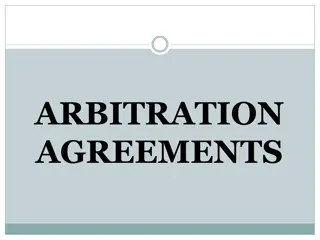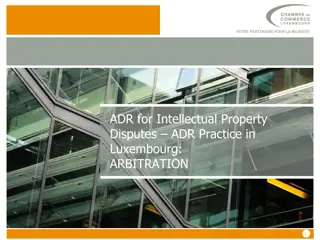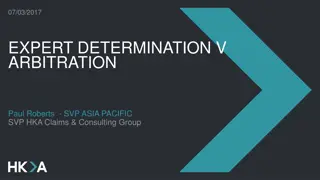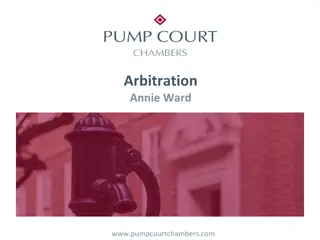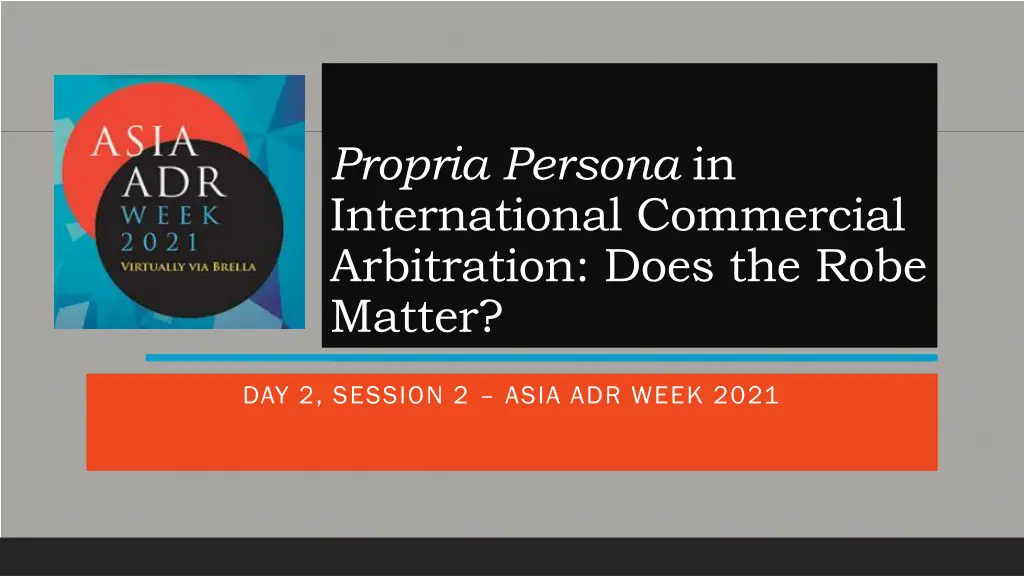
International Commercial Arbitration: Non-Lawyer Arbitrators Insights
Explore the challenges and benefits of having non-lawyers as arbitrators in international arbitration, including the skills required, potential challenges in writing awards, and the importance of diversity amongst arbitrators.
Download Presentation

Please find below an Image/Link to download the presentation.
The content on the website is provided AS IS for your information and personal use only. It may not be sold, licensed, or shared on other websites without obtaining consent from the author. If you encounter any issues during the download, it is possible that the publisher has removed the file from their server.
You are allowed to download the files provided on this website for personal or commercial use, subject to the condition that they are used lawfully. All files are the property of their respective owners.
The content on the website is provided AS IS for your information and personal use only. It may not be sold, licensed, or shared on other websites without obtaining consent from the author.
E N D
Presentation Transcript
Propria Persona in International Commercial Arbitration: Does the Robe Matter? DAY 2, SESSION 2 ASIA ADR WEEK 2021
What has been your experience so far with non-lawyers as arbitrators in international arbitration? THE CURRENT APPROACH Is there value in encouraging professional diversity amongst arbitrators? What might some of the benefits be? Are there any issues with non-lawyer subject matter experts as adjudicators?
What are the aspects of an award that might expose it, or the arbitrator, to challenge? KEY ISSUES: Enforceability and Challenge Considering the value placed on due process and getting the law right , do non-lawyers face greater difficulties with writing an award that will withstand challenge?
What are some of the critical skills required by the arbitrator to control the procedural elements of an KEY ISSUES: Procedural Challenge arbitration? How might this competence be best obtained, and deployed, by the non-lawyer arbitrator?
Does the current process of appointing arbitrators favour the appointment of lawyers? Is there scope to reform the party-appointed process to ENCOURAGING DIVERSITY still preserve party autonomy while encouraging diversity in expertise? What are some other elements of demographic diversity that should be encouraged amongst arbitrators?
THE WAY FORWARD Some recommendations from the panel for the best way forward.

